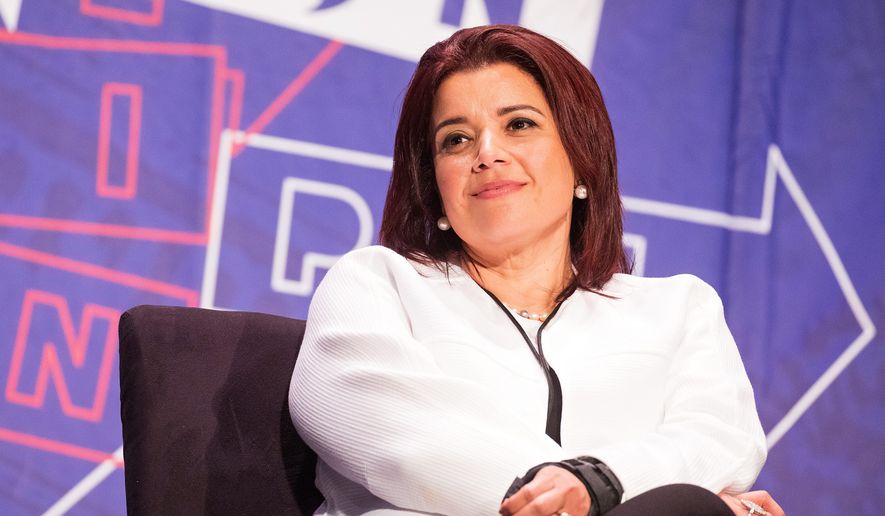CNN commentator and Republican Party strategist Ana Navarro has more than a Supreme Court vacancy or the midterm election on her mind these days.
Ms. Navarro and many of her fellow Nicaraguan-Americans are watching with concern as a violent political clash in their former homeland continues to mount.
Many like Ms. Navarro, who moved to the U.S. as a girl in 1980 during another spate of political instability in her native land, are speaking out forcefully against Nicaraguan President Daniel Ortega while preparing for the personal and political ripple effects in the U.S.
The longtime leftist leader, who has been president since 2007 and appeared to have cemented his rule two years ago in national elections, instead has been rocked by student and worker protests this spring that began over proposed cutbacks to social welfare programs.
At least 210 people have died during demonstrations in the past two months, and the Catholic Church is mediating talks between the government and civic and opposition groups.
“Ortega is a dictator. He is a cruel totalitarian who has been killing the Nicaraguans with impunity, mostly very young people who are protesters,” Ms. Navarro said in an interview. “Right now in the U.S., we’re dealing with the crisis at the border. When people are fleeing for their lives, they will flee to the United States.”
U.S. officials say El Salvador, Guatemala and Honduras, all dealing with weak economies and high crime rates, are the main sources fueling the crisis at the border with Mexico. Nicaraguan-Americans fear their home country could soon become a bigger part of the problem if the conflicts back home are not resolved peacefully.
Christianne Meneses Jacobs, a Nicaraguan-born teacher and publisher in Phoenix whose family fled to the U.S. during the Sandinista revolution of the 1980s, said the “dictatorship” has violated human rights and killed peaceful dissidents.
“[T]he Nicaraguan people are fierce,” she said in an email. “They are not going to give in despite the repression. They are fighting for freedom and democracy. The people want real democracy and free elections.”
But once-promising trends in Nicaragua have been brutally reversed since the government crackdown on street protests in mid-April. Tourism and agriculture have been badly disrupted, transport links have been blocked, and economic growth, which the International Monetary Fund once projected at 4.7 percent for the year, has stalled.
Ms. Meneses Jacobs’ father, Enrique Meneses, a lawyer, defended American pilot James Denby, who was accused of helping anti-Sandinista rebels after his plane was shot down in Nicaragua in 1987. Mr. Ortega’s Sandinista movement accused Denby of being a CIA agent.
Mr. Meneses, who also helped lead the Liberal Party in Nicaragua, was jailed three times by secret police for his politics, and the family fled to Los Angeles in 1988.
Ms. Meneses Jacobs said she believes the Nicaraguan people will hold strong against Mr. Ortega, at least for now.
“If the situation continues to deteriorate then yes, people will start leaving not just to the U.S. but to nearby countries as well,” she said.
The 2010 U.S. census listed about 348,000 people of Nicaraguan descent living in the United States. More than two-thirds were living in either California or Florida. More than 15,000 Nicaraguan-Americans are living in the Washington metropolitan area.
The Department of Homeland Security said this month that refugees can seek asylum at ports of entry along the southern border, though it has not responded to questions about Nicaraguans claiming political persecution. The State Department has denounced Mr. Ortega’s “government-sponsored” killings.
Ms. Navarro said she supports more punitive steps by the Trump administration.
“The U.S. needs to come down hard on sanctions, visa revocations, and be part of a broader solution through the [Organization of American States] and other institutions that defend democracy and human rights,” she said.
Ms. Meneses Jacobs said her Nicaraguan-American friends are angered by the crisis and that Mr. Ortega and his wife, who is the country’s vice president, need to step down.
Ms. Navarro, who visited Nicaragua in early June, said the conditions are unsustainable. Nicaraguans feel alone amid the physical danger, and “the world is playing the fiddle while Nicaragua burns,” she said.
“There is no solution that involves Ortega staying,” Ms. Navarro said.




Please read our comment policy before commenting.